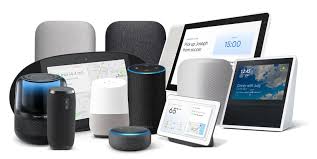1 in 4 Americans provide ongoing, complex care; report finds they endure poor health, financial strain and isolation.
Seekers of Meaning Podcast Posted Online March 7, 2025
What's Next Longevity Deal Talk Episode 32, January, 2025
Presentation: What's Next Longevity Venture Summit, June, 2025

 Who can and will be talking to their technology? Quite a few people will, though it is hard to get a real number – which is ironic, since Amazon, Google, Apple, Samsung, etc. all know how many they have shipped. And they also know
Who can and will be talking to their technology? Quite a few people will, though it is hard to get a real number – which is ironic, since Amazon, Google, Apple, Samsung, etc. all know how many they have shipped. And they also know  What is the likelihood of living to 100 for older adults? Greater than you think – can you imagine that that by 2050, the number will grow from 72,000 to
What is the likelihood of living to 100 for older adults? Greater than you think – can you imagine that that by 2050, the number will grow from 72,000 to  September always seems like a short month. Not just because of the calendar, but because of the pace of return to
September always seems like a short month. Not just because of the calendar, but because of the pace of return to  n a short month, heard lots about caregiving and hearing. You have 'conversed' with an older person who cannot hear well without hearing aids but owns an expensive pair which are highly adjustable. But they don't
n a short month, heard lots about caregiving and hearing. You have 'conversed' with an older person who cannot hear well without hearing aids but owns an expensive pair which are highly adjustable. But they don't